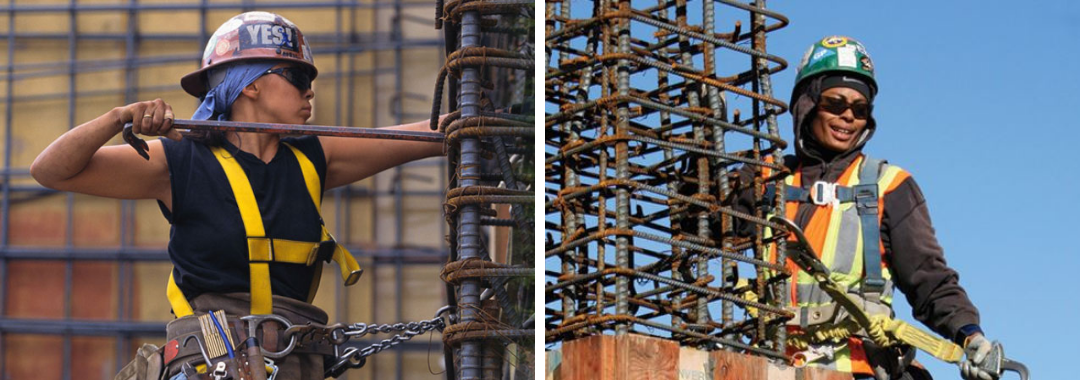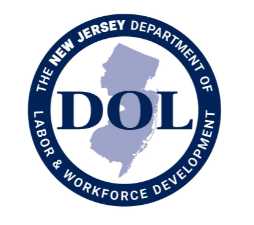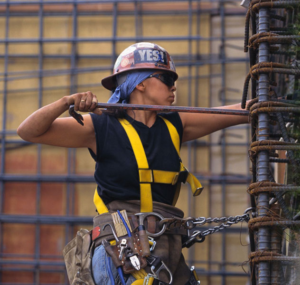
Strategic Workforce Development, an FHWA Every Day Counts (EDC) Round 6 innovative initiative, anticipates collaboration between government agencies, trade organizations, private agencies and communities to prepare individuals for the construction workforce. The demand for workers in highway maintenance, construction and operations is growing, as is the demand for new skill sets required for work with emerging technologies. An important element of this initiative is the recruitment and retention of women and minorities in the construction sector. Through on-the-job training and supportive services program, NJDOT is exploring ways to work with contractors, contracting associations, and unions on shaping their future workforces, including programs aimed at increasing representation of women, minorities, and other disadvantaged populations in the construction and operations workforce.
Associated Construction Contractors of New Jersey (ACCNJ) is a construction trade association representing union construction companies, including highway, bridge, and vertical construction in the tri-state area and beyond, representing both small and larger companies. ACCNJ’s mission is to raise the standard of construction in New Jersey by providing a diverse array of training and educational programs and information for their membership. We spoke with Jill Schiff (Executive Director, Operations) and Darlene Regina (COO) to hear their perspective on pre-apprenticeship and apprenticeship programs in New Jersey.
Q. Is there a lack of awareness among women and minorities of jobs in the construction industry? Do you know of programs that are building awareness of opportunities in transportation?
People understand what construction is and that it is a necessity. They see a plumber or electrician working on their home, an addition going up on the neighborhood school or a group of craftworkers in a work zone widening a highway. Being able to break down what they already know and being able to show them how many opportunities exist in the industry is where we need to meet them.
Union construction trades are progressive in attracting qualified applicants. In addition to traditional avenues, they work with community groups, government entities, and school districts as a way to share information about their programs. All construction trades do conduct outreach to women and minorities, as unions are open to all and labor management cooperatives work on increasing diversity.
The industry makes an effort to actively promote construction career opportunities through a variety of paths, individually and collectively. For example, the EAS Regional Council of Carpenters has a “Career Connections” program for high school students and “CARP” for women and minorities. Union jobs offer competitive pay and benefits, continuous training opportunities, and access to technology. Three- to five-year union construction apprenticeship programs are rewarding and valuable as they prepare participants for successful careers. Apprentices are learning skills while simultaneously earning a salary. There are nominal up-front fees for apprenticeships, such as union dues and/or application fees. Applicants are also required to hold a high school diploma or GED, a driver’s license, be drug-free, and be able to read for information and have math competency.

On the collective side, ACCNJ oversees a Construction Industry Career Day, a two-day event for high school students, supported by the unions, various trade associations, and government agencies. The event started in 2001 and attracts about 3,000 people each year. We advertise the event to every high school in the state, general, private and vo-tech. The event offers hands-on skills learning for different occupations in the field and students are able to talk to current apprentices. Parents and guardians are encouraged to join us so they can become aware of the diverse construction career paths. The next event is scheduled for May 31st and June 1st in 2022.
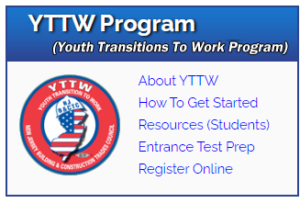
The New Jersey State Building and Construction Trades Council, which coordinates activity and provides resources to 15 affiliated trades unions in the construction industry, is involved in the New Jersey Youth Transitions to Work Program, a state-funded program promoting work-based learning and the establishment of linkages among secondary schools, post-secondary and registered apprenticeships. They also support the Helmets to Hardhats program designed to help transitioning military personnel pursue careers in the building and construction industry.
Q. What are the principal challenges for women and minorities to enter apprenticeship programs and the construction industry?

The main challenges for women and minorities entering the field often relate to transportation and childcare. Reliable childcare is an especially significant barrier for female candidates.
Some individuals do not hold a valid driver’s license or have access to a vehicle, making it difficult or impossible to access job sites located far from their homes or in areas outside central cities where public transportation is limited.
New Jersey is a US Department of Labor (USDOL) apprenticeship state. Apprenticeship programs are audited by the US DOL annually and have to demonstrate certain percentages of women and minority members.
Q. You have worked with Sisters in the Brotherhood. It sounds like a successful program. Can you tell us about this?
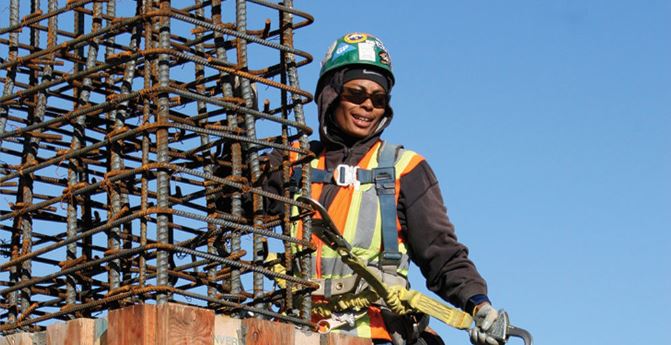
Sisters in the Brotherhood is an international program supporting female members of the United Brotherhood of Carpenters. They advocate for issues women face in the industry, teach educational leadership skills, and offer mentoring to retain and elevate women in the local unions. The focus on fostering a kinship among female members and hold events to enable social interactions.
Sisters in the Brotherhood does have a role in apprenticeships, which varies by local area. Pre-COVID, they had a very successful 12-week course that focused on upgrading math skills and the ability to read for information, and on physical strength training which is necessary in the construction field.
Q. Can you tell us about the Laborers International Union of North America (LIUNA) program that has similar supports?
LIUNA is one of the more diverse unions in the state. They offer membership affinity groups for networking, mentorship, and engagement to promote individual and professional development. They convene a woman’s caucus, an African American caucus, and a Latino caucus, and possibly others.
Q. Would you say there are any model practices currently among community-based organizations to support women and minority individuals looking at the construction trades?
Community-based organizations such as the Newark Alliance, Urban League in Essex County, Urban League of Camden County and the Edison Job Corps Center in Middlesex County teach skills, including soft skills, to help make individuals more employable and independent. These organizations are an important support to the trades in attracting women and minorities to the profession.
Q. What types of construction pre-apprenticeship programs are there in NJ?
Pre-apprenticeship programs are becoming more prevalent in New Jersey. These programs are valuable because they focus on preparing participants with the soft skills needed to succeed in the construction trades. Participants who complete pre-apprenticeship programs are still required to apply for apprenticeship programs.
For example, the Bricklayers have a 12-week pre-apprenticeship program. Laborers also had a pre-apprenticeship program in Jersey City but it was directed more to building laborers.
Q. Do you have any insights into the New Jersey Department of Labor and Workforce Development (NJDOL) apprenticeship programs, and the legislation behind them? Are any of the programs relevant to the highway construction trades?
Remember that NJDOL does not implement apprenticeships; however, they do have an Office of Apprenticeship that assists organizations with apprenticeships via grants and other opportunities.
As we said, pre-apprenticeship programs are becoming more common in the state. The NJ Office of Apprenticeship is offering funding to support these initiatives through their Growing Apprenticeship in Nontraditional Sectors (GAINS) and Pre-Apprenticeship in Career Education (PACE) programs.
Resources
Associated Construction Contractors of New Jersey
https://accnj.org/
Federal Highway Administration, Every Day Counts Round 6, Strategic Workforce Development
https://www.fhwa.dot.gov/innovation/everydaycounts/edc_6/strategic_workforce_development.cfm
Laborers International Union of North America
https://www.liuna.org/
New Jersey Building and Construction Trades Council
http://www.njbctc.org/
NJ Department of Labor, Office of Apprenticeships
https://www.nj.gov/labor/career-services/apprenticeship/
Sisters in the Brotherhood
https://www.carpenters.org/sisters-in-the-brotherhood/

